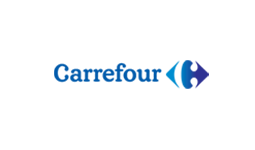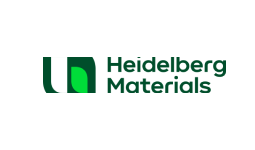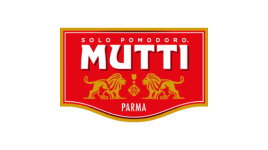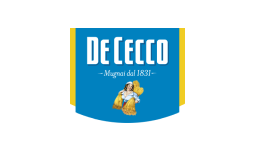Mandatory Electronic Invoicing in Hungary
Learn how to get your company ready to exchange documents in accordance with Hungarian requirements with the support of Comarch
Learn how to get your company ready to exchange documents in accordance with Hungarian requirements with the support of Comarch


E-Invoicing in Hungary for B2G and B2B transactions is not mandatory. However, all companies are required to undertake real-time invoice reporting (RTIR). In the RTIR model, electronic invoicing in Hungary is not strictly regulated but permitted. Even so, the vendor must report the subset of the invoice to the tax agency in a predetermined format shortly after it is issued and handed over to the buyer.
Since 1 April 2021, it has been obligatory to disclose data on all invoices in Hungary, as well as modification and invalidation invoices to which the invoicing rules of the Act on VAT apply.The data disclosure must be fulfilled via the Online Invoice System (Számla platform). This also applies to business-to-customer (B2C) transactions, and transactions issued by non-residents.

The Hungarian fiscal system operates within the framework of the tax authority, Nemzeti Adó és Vámhivatal, known as NAV. This office, prior to the introduction of the electronic invoicing system, introduced the electronic reporting system RTIR. Immediately after issuing an invoice, its details should be transferred to NAV, and the invoice is considered to be issued when the invoice details are closed by the invoicing software. Therefore, the provision of data ends when no data of a given invoice with a specific serial number can be overwritten, which means that its content can only be changed by issuing an invoice with a new number.
Invoices may be made out in Hungarian or in any written foreign language. If the invoice is made out in a language other than Hungarian, in the course of an audit conducted within the framework of administrative tax proceedings, the taxable person issuing the invoice may be obliged to furnish an official Hungarian invoice translation, made at their own expense. However, receipts must be issued in Hungarian.

Unlike e-reporting, it is not mandatory to issue invoices in electronic form. Invoices in Hungary can still be issued using printed invoice forms or an invoicing program (or cash register). However, data from issued invoices must be disclosed in the RTIR System. Manual invoice data must be entered in the online invoice system (Számla platform). The issuance of e-invoices by government suppliers is still voluntary, while public administrations must be able to receive and process electronic invoices.

In general, the RTIR System requires XML format. The tax authority’s version 3.0 XML contains a separate field where invoice issuers can indicate to their customers that the given XML file is not only for reporting to the tax authority, but also qualifies as an e-invoice for the customer.
In other cases such formats as .txt, .csv, .dbf, .mdb, .xsl, .xml, .pdf, and any other print file that contains unformatted text or characters are accepted.

Although electronic invoices, as a means of reporting data, can be found in the system of the tax authority, in this case the tax authority does not undertake to store them in accordance with archiving regulations. Electronic tax invoices must always be stored by the taxpayer. E-archiving can be performed by any method that meets the requirements of the law (ensuring confidentiality, integrity and availability), in particular by one of the following methods:
The documents should be stored for:

Comarch provides connectivity to the NAV 3.0 near real time tax reporting platform and report issuance in accordance with the required XML scheme. Comarch also covers the NAV 3.0 e-Invoicing service, which enables exhanching electronic invoices via the NAV 3.0 platform.
We have 20+ years of experience in carrying out various EDI, e-invoicing, and other document exchange projects around the world. In those years, we have successfully connected more than 130,000 entities from over 60 countries.
Full compliance with the latest data exchange regulations and modern data transfer standards
Applying new technologies and IT solutions in order to streamline workflows and automate activities and procedures
Tailor-made solutions based on processes specific to each company – own road map and a suitable pace of changes
Highest level of security for all sensitive and important company data
E-Invoicing in Hungary for B2G and B2B transaction is not mandatory. However, all companies are required to undertake real-time invoice reporting (RTIR).
The data from the issued invoices are to be submitted electronically in XML format.
Currently, version 3.0 is supported by NAV (the Hungarian tax authority).
The invoicing program transmits the data of made out invoices to NAV. As a general rule, the data must be provided immediately upon issuance. An invoice made out by invoicing software is considered issued at the time when the invoicing software closes the data of the invoice. The data supply shall therefore be completed at the time from which no data of the given invoice with a specific serial number can be overwritten, meaning its data content can only be modified with an invoice issued on a new number amending or by voiding the original one.
Immediacy shall be interpreted within the limits of reasonableness. Thus, for example, if a taxpayer has set up their own business administration to approve and close the data of several hundreds of invoices at the same time, and the transmission of invoice data commences when the invoices are closed, immediate transmission will take place even if the transmission itself takes several hours.
Storage period: 8 + 2 years
Although the electronic invoice, as a means of reporting data, can be found in the system of the tax authority, in this case the tax authority does not undertake to store it in accordance with archiving regulations. Electronic tax invoices must always be stored by the taxpayer.

To learn the e-invoicing requirements for a specific country, click on its flag and access the relevant information.
Make sure your business meets international standards with the Comarch e-Invoicing platform, trusted in more than 60 countries. Enjoy hassle-free integration and continuous compliance updates.























